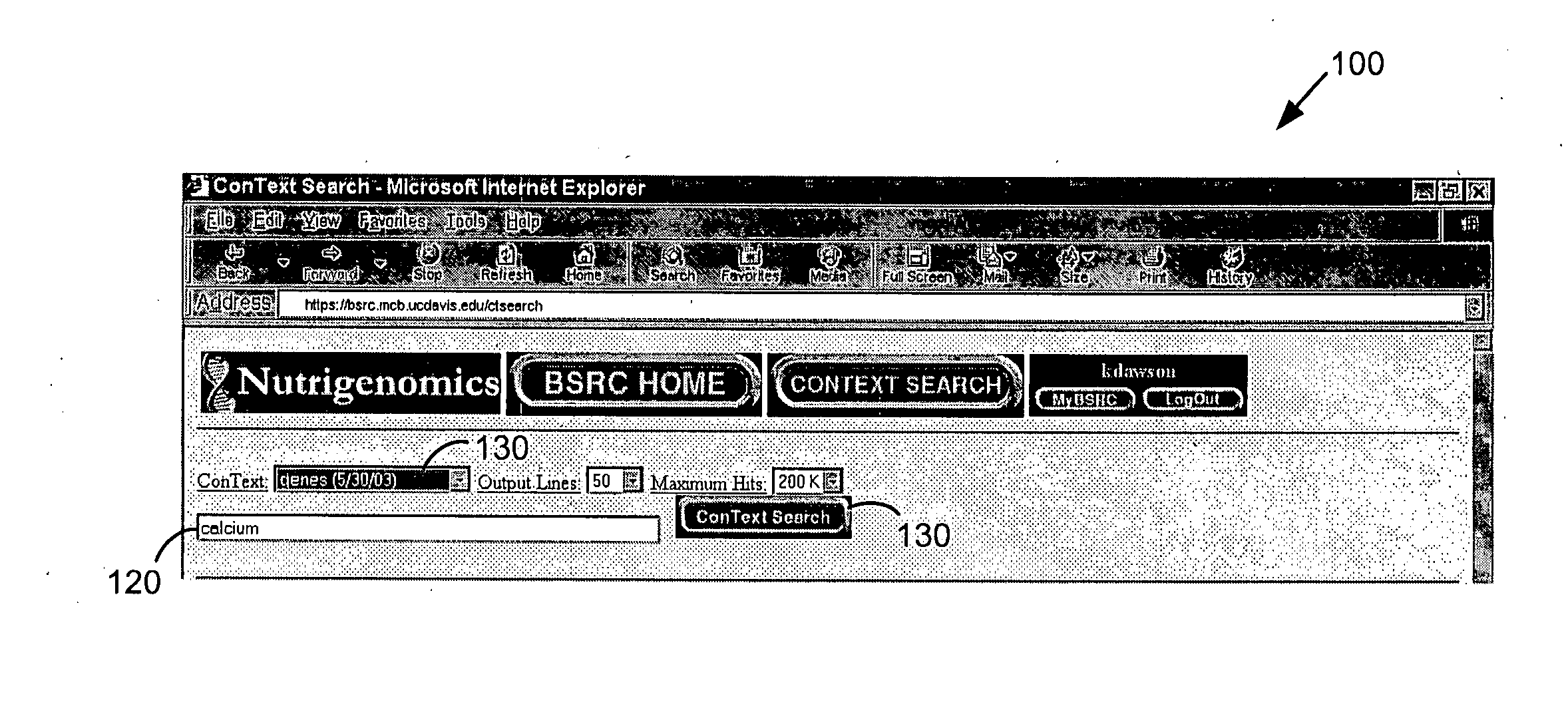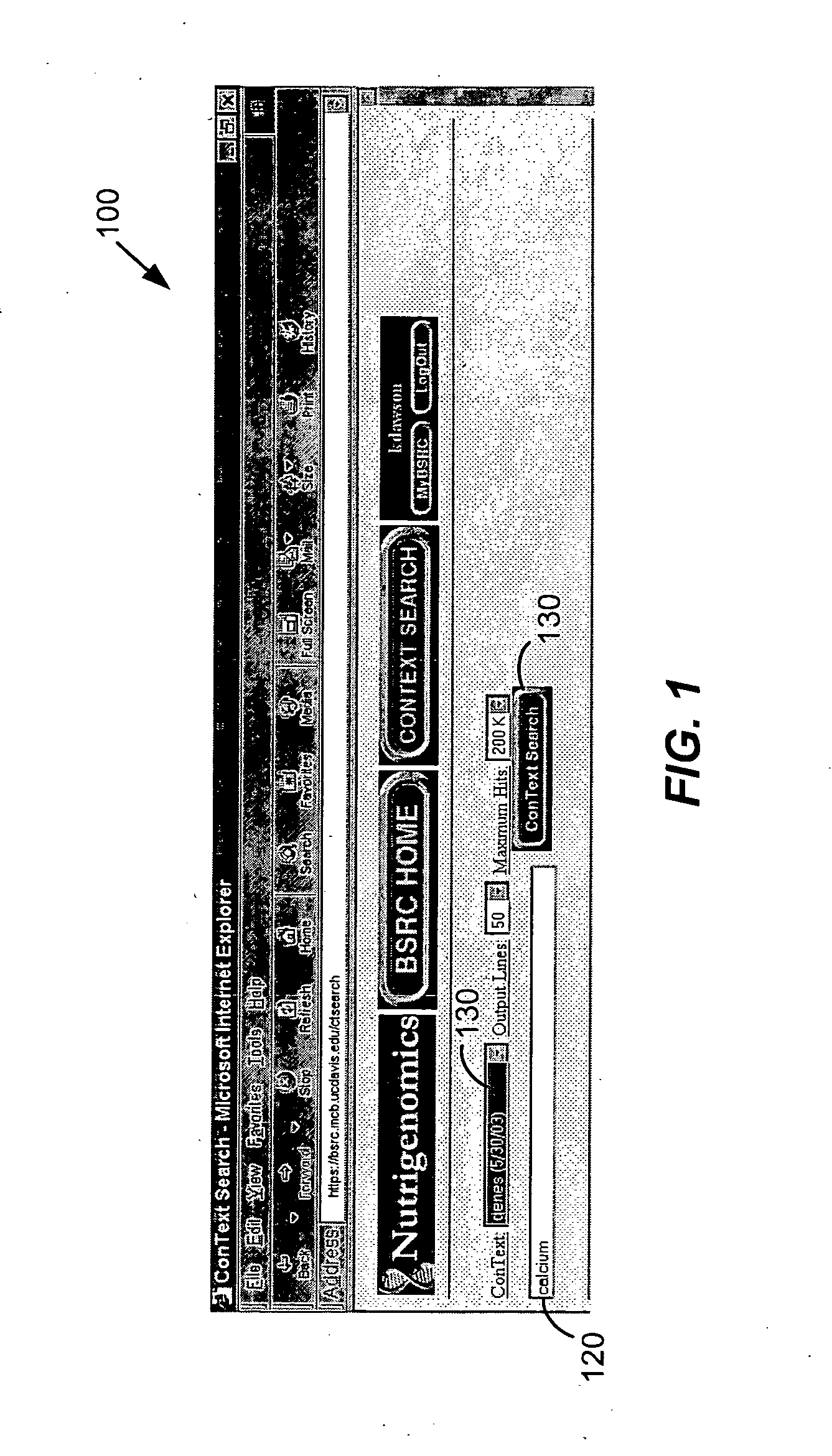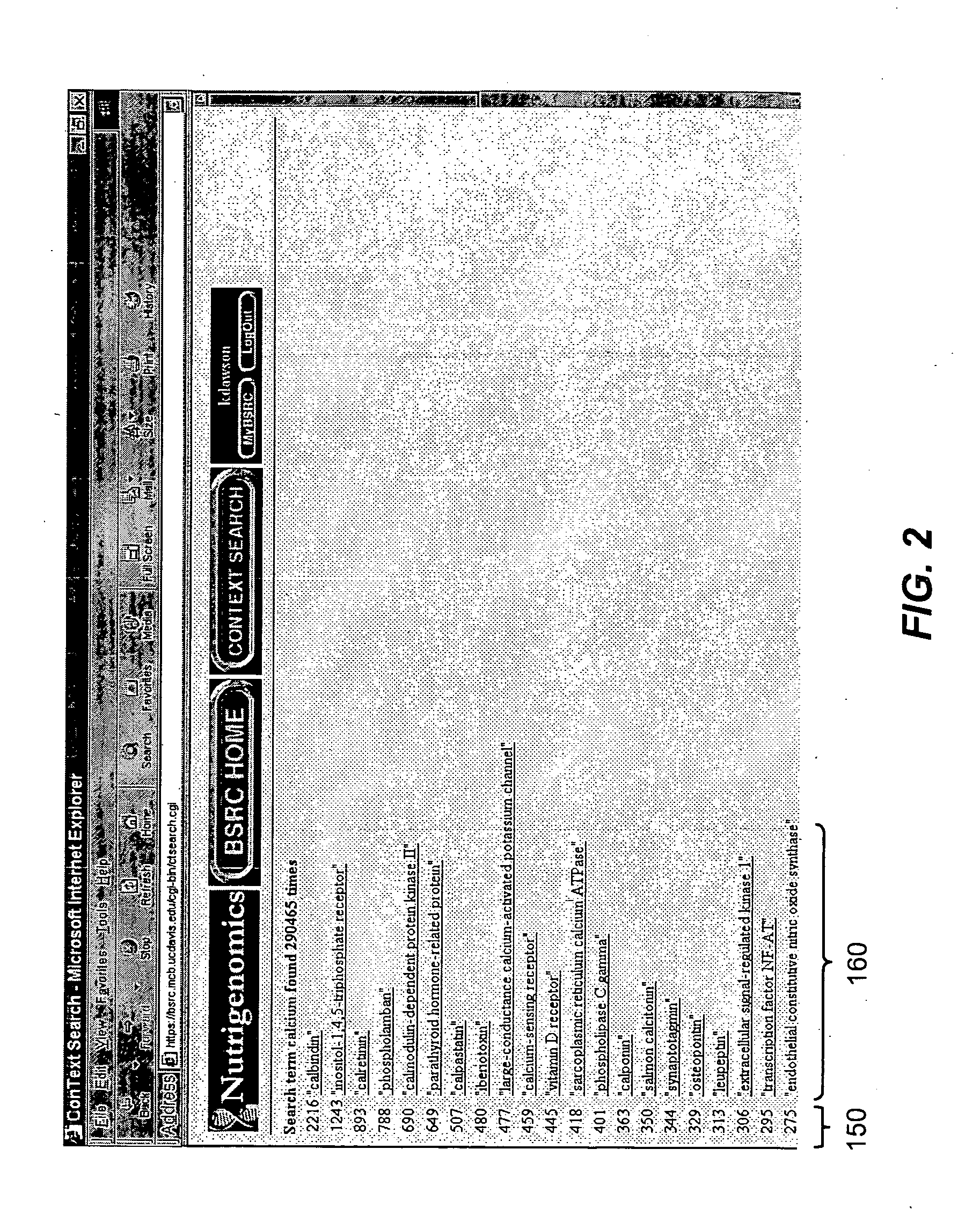System and method of context-specific searching in an electronic database
a database and context-specific technology, applied in the field of electronic database systems, can solve the problems of inability to effectively use these languages, the overwhelming amount of information now available from these databases, and the inability of many of today's typical users to achieve effective use of these languages
- Summary
- Abstract
- Description
- Claims
- Application Information
AI Technical Summary
Benefits of technology
Problems solved by technology
Method used
Image
Examples
Embodiment Construction
[0031] Different embodiments of the invention illustrating preferred implementations of three different applications are described in detail in computer instructions included in the Source Code Appendix of this application. These applications are merely examples. Many other types of applications are possible using features or other characteristics presented herein. The Source Code Appendix should be consulted for implementation details of the subject matter discussed herein.
[0032]FIG. 1 illustrates screen portion 100 from a user interface according to a preferred embodiment of the invention. In FIG. 1, a user can select a context for a search using the drop-down selector at 110. As shown in FIG. 1, the user has selected the context named “genes” that was created or updated on May 30, 2003. In a preferred embodiment, contexts are authored or defined by a human expert or curator who is aware of the types of searches in which a specific user base is interested. The curator will typica...
PUM
 Login to View More
Login to View More Abstract
Description
Claims
Application Information
 Login to View More
Login to View More - R&D
- Intellectual Property
- Life Sciences
- Materials
- Tech Scout
- Unparalleled Data Quality
- Higher Quality Content
- 60% Fewer Hallucinations
Browse by: Latest US Patents, China's latest patents, Technical Efficacy Thesaurus, Application Domain, Technology Topic, Popular Technical Reports.
© 2025 PatSnap. All rights reserved.Legal|Privacy policy|Modern Slavery Act Transparency Statement|Sitemap|About US| Contact US: help@patsnap.com



